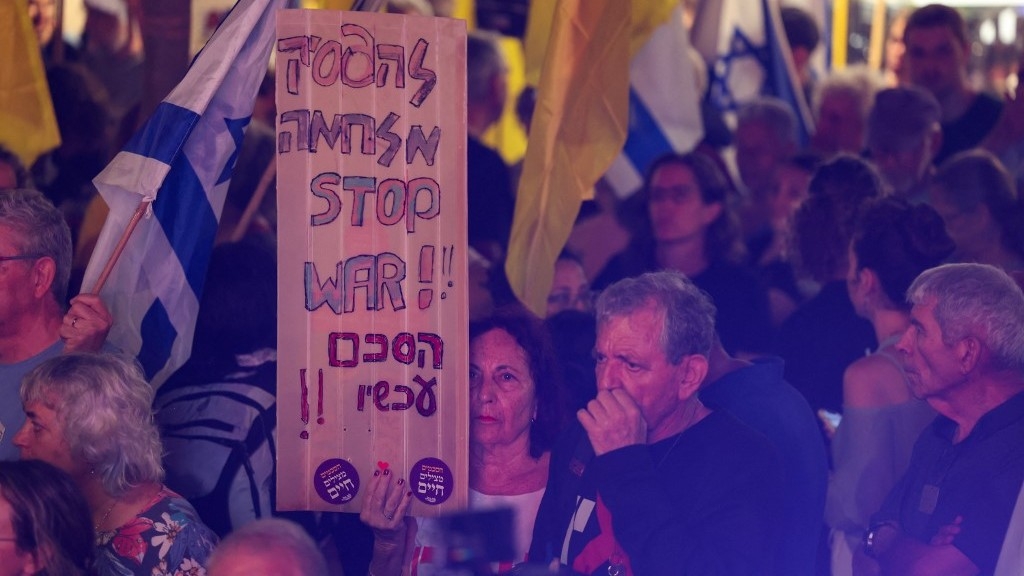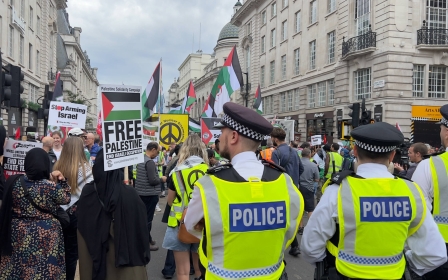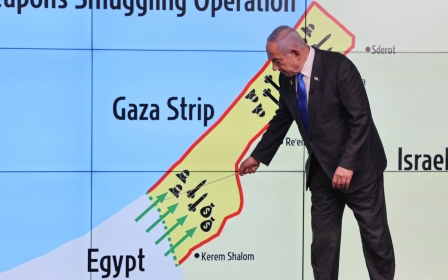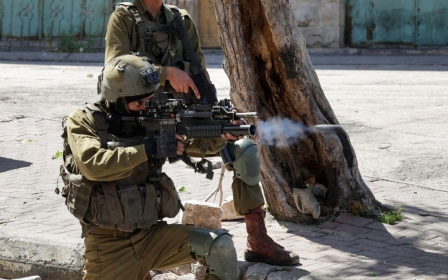Half a million people protest against government in Israel

Hundreds of thousands of Israelis protested across the country on Saturday for the eighth consecutive night with some clashes reported with the police.
The demonstrations were ignited on Sunday last week after the bodies of six captives were recovered from the Gaza Strip.
In Tel Aviv, the main site of the protests, organisers reported that over 500,000 people participated. Other significant demonstrations took place in Jerusalem, Haifa, Be'er Sheva, and near Prime Minister Benjamin Netanyahu's private residence in Caesarea.
After the main protest in Tel Aviv, demonstrators gathered near the Ayalon Highway, blocking it and setting a bonfire on nearby Begin Street. There were scuffles with police, and at least one person was arrested.
The momentum from these protests shows no sign of fading. After a week of demonstrations, hostage families and advocacy groups are urging the public to keep taking to the streets to demand a deal.
New MEE newsletter: Jerusalem Dispatch
Sign up to get the latest insights and analysis on Israel-Palestine, alongside Turkey Unpacked and other MEE newsletters
Last week the head of Israel's powerful Histadrut trade union, Arnon Bar-David, called for a "complete strike" starting on Monday to pressure the government to secure a deal for the release of the remaining captives.
Bar-David emphasised the urgency of reaching a deal, saying, "A deal is not progressing due to political considerations and this is unacceptable."
Protesters scuffle with police, try to break through a barricade. They’re chanting “shame,” “Ben Gvir is a terrorist” and “where were you at Sde Teiman,” the infamous prison where Palestinian prisoners were abused, at the cops pic.twitter.com/euqqU5WWSP
— Linda Dayan (@LindaDayan9) September 7, 2024
Senior Hamas officials said that Israel, in its refusal to sign a ceasefire agreement, was to blame for the deaths.
"Netanyahu is responsible for the killing of Israeli prisoners," senior Hamas official Sami Abu Zuhri told Reuters. "The Israelis should choose between Netanyahu and the deal."
'No captives-ceasefire deal'
Earlier on Saturday Israel's far-right Finance Minister Bezalel Smotrich expressed opposition to a captives-ceasefire deal, even if it allows Israel to maintain a presence on the Egyptian-Gaza border.
He argued that even the terms supported by Israeli Prime Minister Benjamin Netanyahu would undermine Israel’s goals of destroying Hamas and securing the release of all captives.
In an interview on Channel 12 news, Smotrich, who leads the far-right Religious Zionism party, stopped short of saying he would leave the coalition if such a deal proceeded.
Smotrich rejected the idea that the Israeli military onslaught in Gaza hinders the captives' release, insisting that destroying Hamas and rescuing captives "are not contradictory goals".
Smotrich clarified that he seeks "a deal of surrender," but not one where Israel surrenders by leaving Gaza. Instead, he envisions a scenario where Hamas is forced to disarm and is expelled from Gaza, paving the way for a demilitarised Gaza to be rehabilitated. He has previously advocated for Israel to regain full control of Gaza and restore Jewish settlements there.
Smotrich ruled out a deal involving Israel's full withdrawal from Gaza, stating that retaining control of the Gaza-Egyptian border is "a minimum".
Middle East Eye delivers independent and unrivalled coverage and analysis of the Middle East, North Africa and beyond. To learn more about republishing this content and the associated fees, please fill out this form. More about MEE can be found here.




